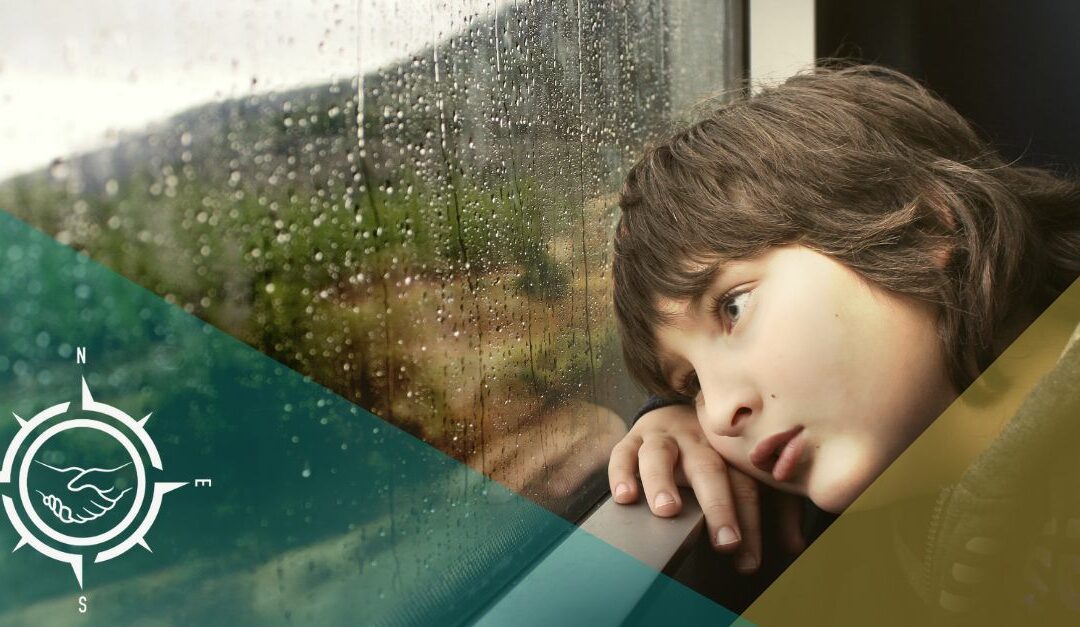How to Help Your Child Work Through Repressed Trauma and Heal
Trauma can stick with us if we don’t work through it. Often, traumatic experiences in our childhood can be so overwhelming and threatening that many children (and even adults) repress those memories and feelings to protect themselves.
Unfortunately, more than two-thirds of children in the United States experience a traumatic event by the time they turn 16. These types of adverse experiences can include:
- Natural disasters
- Community violence
- Sexual abuse
- Physical abuse
- Emotional abuse
- Neglect
- Serious illness for the child or a loved one
- Unexpected loss of a family member or friend
Because these experiences can be so traumatic, it’s easy to understand why our brain would repress these memories. But is it healthy? And if not, how can you help your child deal with their lingering childhood trauma? Let’s dive into the mystery surrounding repressed childhood trauma.
What are Repressed Memories?
Repressed memories involve trauma we don’t consciously recall. This is sometimes diagnosed as dissociative amnesia. These adverse experiences are still stored as memories in our brain and can negatively affect us. Because the experiences are traumatic and difficult to process, the brain essentially walls off this memory to help protect you.
Trauma is complicated and messy for our brains, especially for young brains which can be more easily overwhelmed by trauma. Trauma and memory experts also agree that it’s possible, though rare, to forget and then remember these traumatic experiences. But what complicates it even more is that as a defense mechanism, our brain will fabricate believable memories of things that didn’t happen in place of the traumatic experience.
Memory is Not Always Reliable
Forgetting details of your childhood is totally normal. Because we don’t usually develop a stronger sense of memory until the ages of 8 to 10, most of us forget early childhood memories as a normal part of aging, in a process known as “childhood amnesia.”
Since our brains are known to fabricate more pleasant memories in place of traumatic ones, it’s safe to say that our memories aren’t ironclad–even for those of us who have not had childhood trauma! Memories are a way for us to create meaning in our lives because the thoughts and feelings we have around a particular memory are what help us understand our purpose and standing in the world.
Signs of Repressed Childhood Trauma
Chances are you know if your child has experienced a traumatic event in their young life. But what is even more important to know is whether or not they are working through that trauma in order to heal from it. Healing from trauma can only happen by working through those traumatic experiences.
However, your child may not always be able to express how they are feeling and whether or not they need help. That is why it’s so important to know the signs of repressing memories.
Here are some of the signs that your child may be repressing their traumatic experiences:
- They seem to dissociate from what is currently happening to them (emotionally detached, numb, zoning out, out-of-body experiences, etc.).
- They seem to have holes or gaps in their memory surrounding the traumatic event(s).
- When they encounter a triggering event, sound, scent or sight, they feel flooded with emotions related to the traumatic experience, but don’t understand why they feel this way.
- They have black and white thinking, extreme mood swings, overreact, are impulsive, and/or have difficulty with emotional regulation.
- They create false memories that they share for attention.
- They engage in revictimization, which is the act of repeating actions and behaviors associated with their traumatic experience.
- They exhibit avoidant behaviors, evading particular people, places, situations, etc. that trigger traumatic memories.
How to Help Your Child with Repressed Childhood Trauma
Simply letting time pass doesn’t always heal unresolved childhood trauma. Healing requires working through trauma, learning to self-regulate, plus learning healthy coping mechanisms. Getting experts involved through therapy and treatment for repressed childhood trauma can help your child heal.
There is no one-size-fits-all when it comes to therapy for childhood trauma. Some evidence-based treatment options that may be helpful for your child include:
- Cognitive Process Therapy (CPT)
- Eye Movement Desensitization and Reprocessing (EMDR)
- Cognitive Behavioral Therapy (CBT)
- Accelerated Resolution Therapy
Finally, it’s important for parents of children with trauma to have a support system too. Having other parents going through similar situations can be a great support system and sounding board for getting ideas on how to help your own child. That is why at Child Trauma Sherpa, I strive to bring you helpful information through blog articles plus a support group on Facebook, The Child Trauma Project for Parents. Here you can find non-judgmental support and knowledge to assist you in helping your child heal from trauma!


